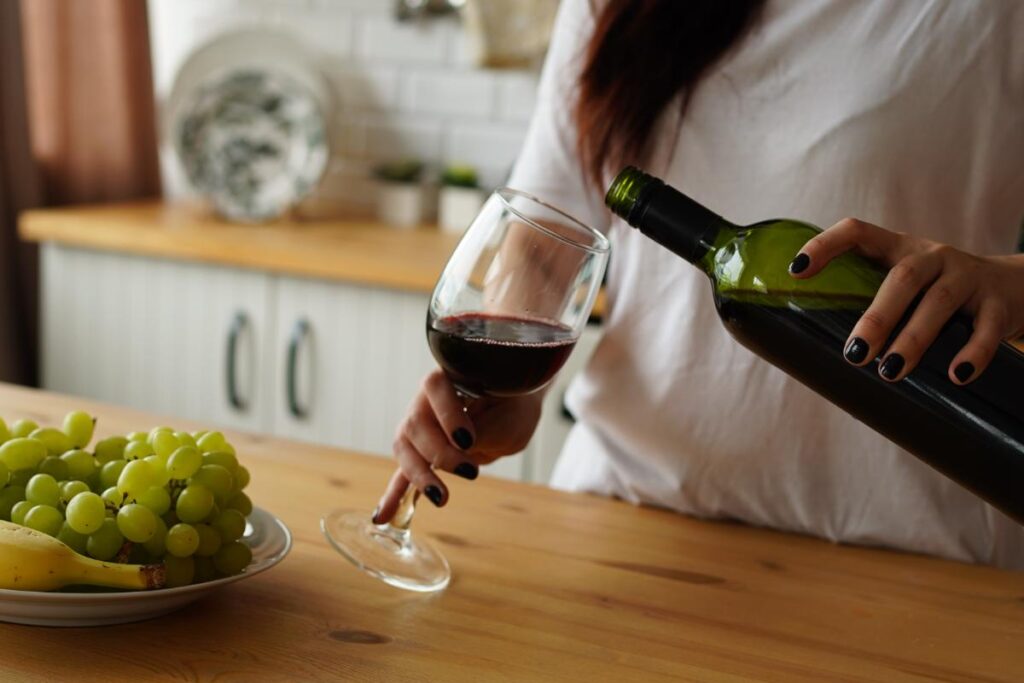The phrase “wine mom culture” might seem humorous, but it is no laughing matter. These playful references normalize the alcohol abuse and dependency affecting many American mothers. Catchphrases like, “I wine because my kinds whine,” or “Mommy juice” trivialize the genuine dangers of wine mom culture. These phrases are emblazoned on coffee mugs, tote bags, and wine glasses and are dangerous promotions of wine mom culture. While it may seem cute or just playful, it underscores a potential danger to women’s health. Fortunately, Right Step Houston has the alcohol addiction treatment programs necessary to help individuals.
How Wine Mom Culture Is Defined
It was not until the early 2000s that wine mom culture started exploding on social media. During this time, many people began engaging in conversations and posts about shared interests, including participating in a Facebook group entitled “Moms Who Need Wine,” which launched in 2009. On this page, which has over 70K followers, moms share the challenges they face raising children and how it requires copious amounts of alcohol.
While wine mom culture initially started as a way for moms to bond over their shared struggles, it has gradually become something that is often mocked and ridiculed by outsiders. This is because many people see it as a way for moms to avoid their responsibilities, and they view it as an excuse to drink excessively.
Social media is not the only platform that is responsible for supporting the wine mom culture. There are several movies, including Bad Moms and Wine Country, normalizing this culture. There are also TV shows showing moms clutching onto wine glasses when trying to cope with raising their children. Not every mom who is part of this culture suffers from alcoholism, but some are alcoholic mothers.
Wine Mom Culture Is Criticized
While wine mom culture has its fair share of supporters, there are also many people who criticize it. The main criticisms are:
- It sets a bad example for children, as it encourages excessive drinking.
- It perpetuates the stereotype that all mothers are alcoholics.
Wine mom culture has also been criticized for being exclusive. It is often seen as a way for rich, white moms to bond with each other while excluding other mothers who do not drink alcohol. This exclusivity can make it difficult for non-drinking moms to feel like they belong in the parenting community.
How to Battle the Dangers of Wine Mom Culture
Do you feel like you are not part of the “crowd” if you are not participating in wine mom culture? Do you feel like you need to start pouring glasses of wine when cooking dinner or at a particular time of day to cope? Battling the dangers of wine mom culture starts with being honest with yourself and examining your behavior. Here are some ways of understanding how to battle this culture:
- Alcoholism: Unfortunately, those who are part of the wine mom culture take drinking and alcoholism lightly. Data available in a study published in 2017 indicates a 58% increase in risk among women during the past decade.
- Children: When you make comments about needing a “mommy timeout” to drink, or if they see phrases on your items, what message are you sending to your children? When you are parenting, they see that you can only cope when you have a wine glass in your hand. The last thing any mother should be doing is sending them a message that parenting them requires alcohol.
- Physiology: Because a woman’s body contains less water than a man’s, they can achieve a higher blood alcohol level. The higher concentration of fat a woman’s body carries also allows it to retain more alcohol. As a result, in addition to producing less of the enzyme that breaks down alcohol, a woman’s body is subject to more damage than a man’s.
- Underlying issues: If you find yourself making a lot of wine mom culture jokes, that could signify that you have an underlying issue. For example, you might feel more comfortable showcasing a sippy cup with the phrase “mommy’s juice” because it makes you feel less vulnerable than asking for help.
How Wine Mom Culture is Dangerous for Families
We learn from the Substance Abuse and Mental Health Services Administration (SAMHSA) that approximately 10% of American youths live with at least one alcoholic parent. That exposure heightens their risk of becoming dependent on alcohol. We also learn from the National Institute on Alcohol Abuse and Alcoholism that women are less likely to seek treatment for alcoholism. That reality poses significant dangers for families.
Final Thoughts
Do you have questions about if wine mom culture is affecting your life? Are you struggling with alcoholism and feel like you cannot ask for help? No one should undergo such struggles without the best help. At Right Step Houston, we offer numerous addiction therapies to help individuals. Contact Right Step Houston 1.844.768.0169 to learn more about how we can help.

